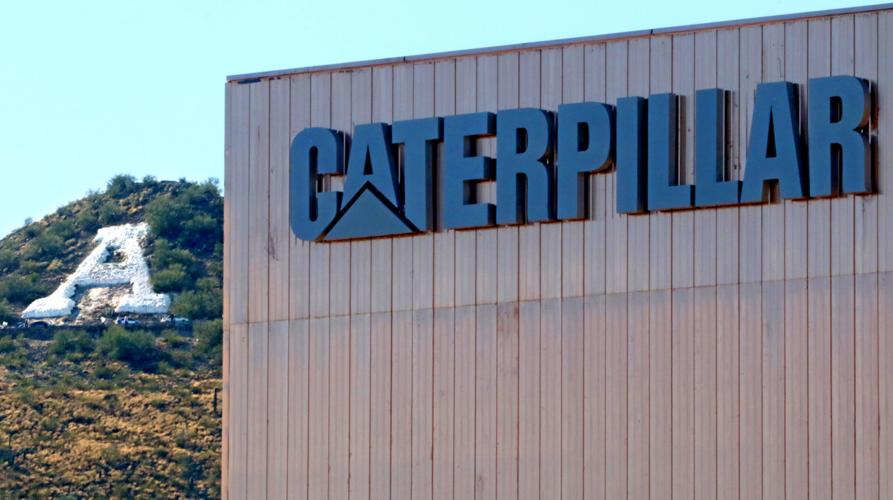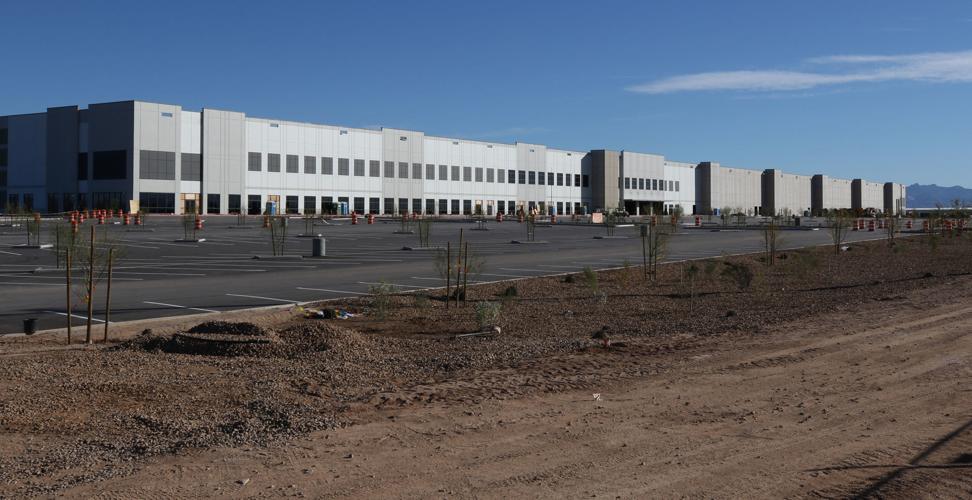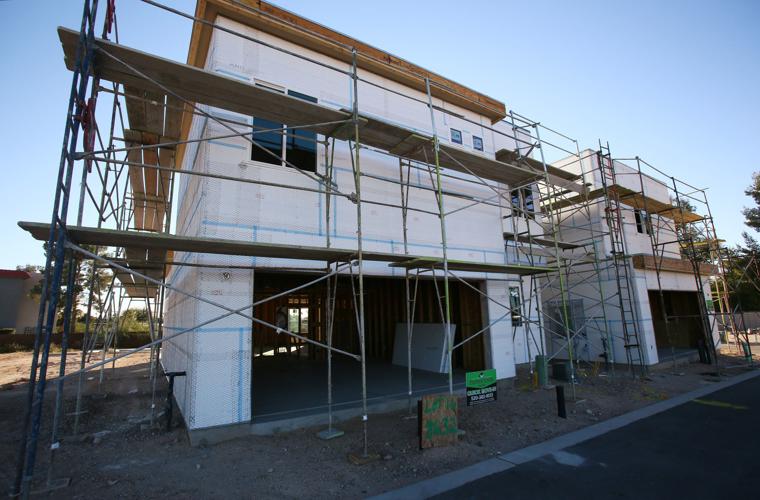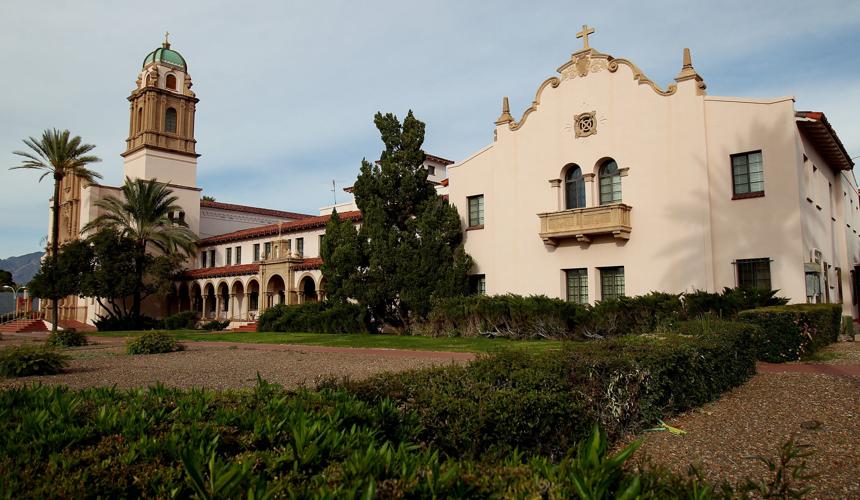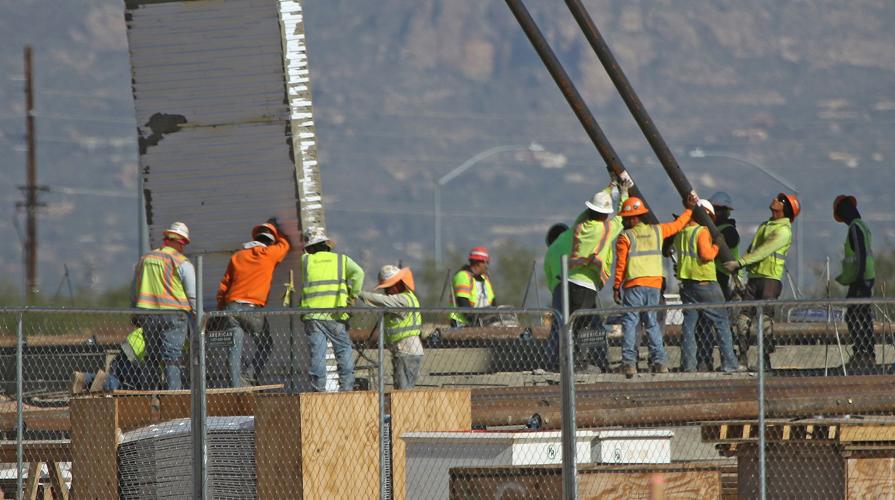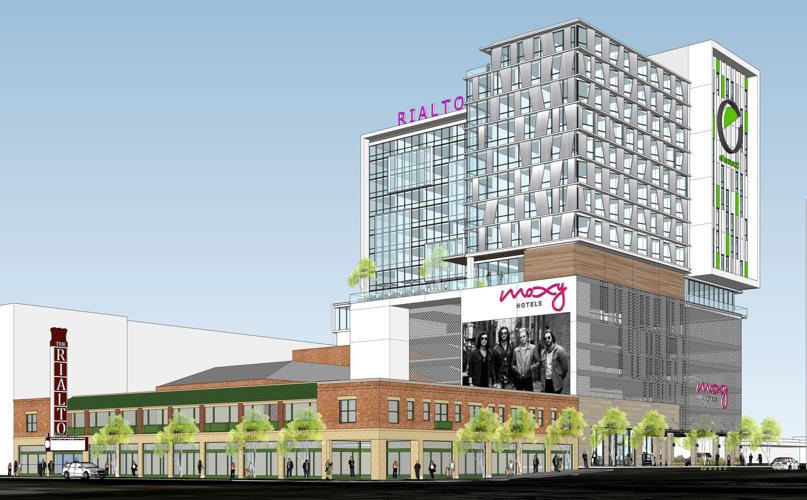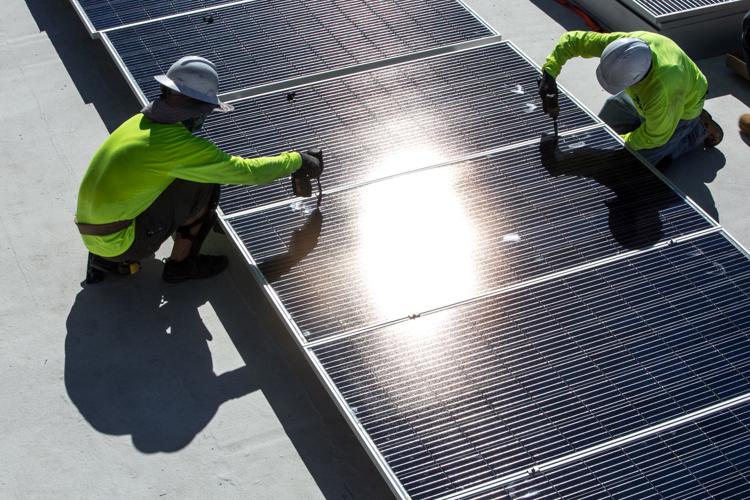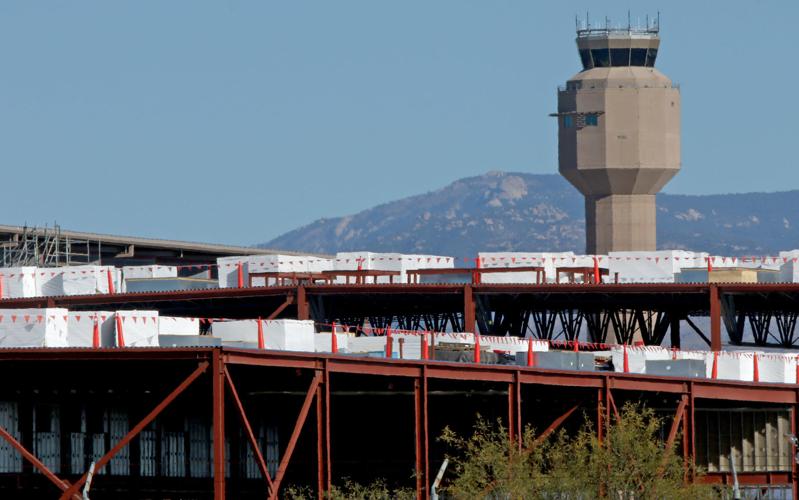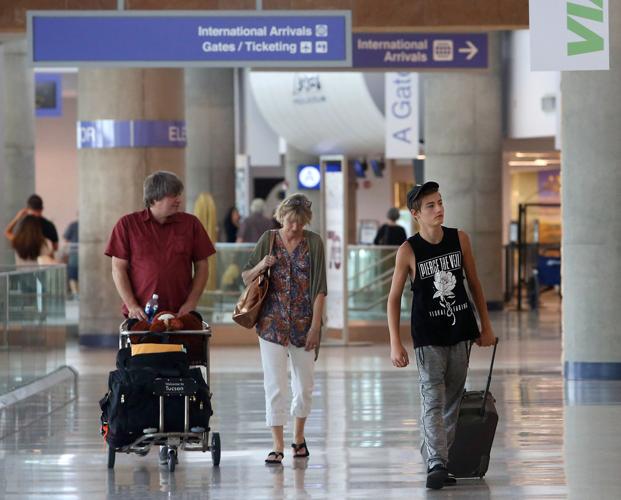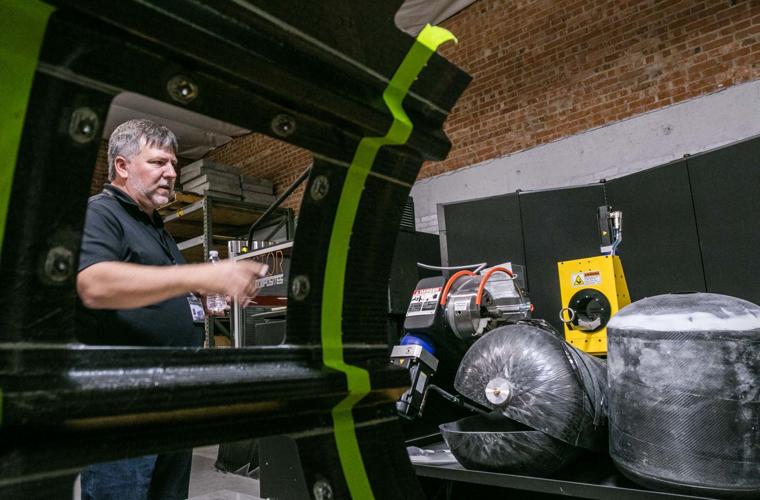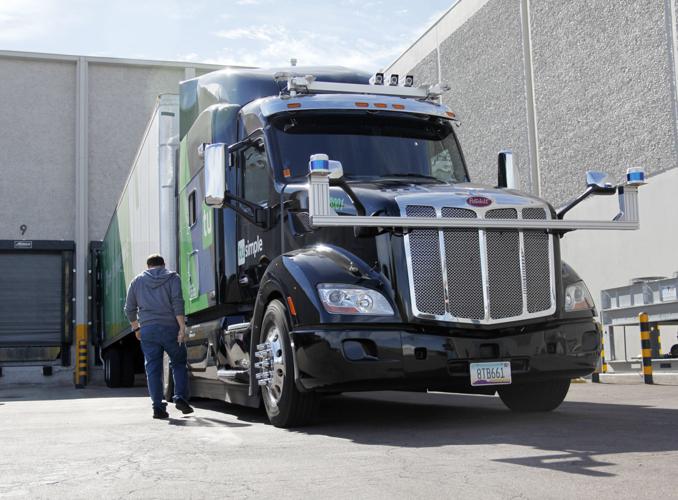Growth was the big story in 2018 as Tucson’s economy began hitting on all cylinders, with local companies including Raytheon Missile Systems expanding and major new players like Amazon and Caterpillar readying buildings for the arrival of thousands of new workers.
Here’s a quick look back at some of the biggest Tucson-area business stories of the past year:
Commercial building boom
In a busy year for commercial construction, 2018 saw several impressive structures rise to accommodate a wave of new workers, including the massive Amazon distribution center at the Port of Tucson, near Kolb and Valencia roads.
Amazon expects to employ between 1,500 and 1,900 workers at the 800,000-square-foot warehouse when it begins operating next summer.
Elsewhere:
- Texas Instruments announced an expansion with a new facility at Williams Centre, near Broadway and Craycroft Road. The company, which currently employs about 300 local workers, plans to add 35 jobs with an average salary of $143,000.
- Geico is expanding into a regional office at The Bridges, near 36th Street and Kino Parkway. Local developer The Bourn Cos. is constructing a 200,000-square-foot building for the national insurer — one of Tucson’s largest employers with 2,100 workers. Geico plans to add about 700 jobs.
- The building for Caterpillar’s Surface Mining and Technology Division is almost done west of Interstate 10 on Cushing Street. The 150,000-square-foot building is expected to be completed early next year and house about 600 executives.
New hotels Downtown
After years of tourism officials begging for more hotels downtown, plans for five new hotels were announced this year.
Hampton Hotels is planning a Hampton Inn and a Home2 Suites hotel on Stone Avenue, near St. Augustine Cathedral; Marriott is planning a combined Moxy and Element hotel on the Rialto Block, at Fifth Avenue and Broadway; and Caliber Hospitality is developing a convention hotel southwest of the Tucson Convention Center.
The five projects, which follow the opening of the 136-room AC Hotel Downtown Tucson by Marriott last year, will add more than 600 hotel rooms downtown.
New-home prices top $300,000
Tucson’s median new-home price topped $300,000 for the first time in the local market. A lack of inventory has created a seller’s market, with multiple offers coming in for a single home. Homebuilders are on the hunt for smaller lots to try and keep home prices down.
Monastery development
The beloved Benedictine Monastery on North Country Club Road was sold and plans announced for seven-story apartment complexes on the site.
After much back and forth with city officials and area residents, the plan now stands at four stories and includes an additional complex on the adjoining lot, where an abandoned house sat empty for years. While uses for the monastery itself are still being considered, its facade will be preserved.
Worker shortage
Not all the news was good. The shortage of skilled workers hit home in a big way this year. The $100 million Nakoma Sky project in Oro Valley, a senior living community, abruptly halted after contractors could not guarantee a price or timeline because of the uncertainty of having enough construction workers. The 77-acre development with 200 planned independent and assisted-living units was 95 percent preleased.
TEP solar moves
After years of wrangling, the Arizona Corporation Commission in September finally approved new rates for residential and small-business customers of Tucson Electric Power Co. who install rooftop solar arrays, cutting credits for excess power generation and imposing higher meter fees on new solar customers (the changes do not apply to customers who had solar before the ACC decision).
The decision was in line with a statewide policy the ACC adopted in late 2016 to end so-called net metering, which allowed solar customers to get full retail credit for their excess generation.
TEP also won state approval for a power line needed to connect its planned biggest solar farm and battery array yet, a 100-megawatt array and 30MW battery system NextEra Energy Resources is building south of the city along South Wilmot Road.
Space firms
In October, Tucson-based startup Vector secured $70 million in new investment capital to further its development of small rockets to launch a new generation of micro-satellites into space.
The funding round was led by New York-based Kodem Growth Partners, with Morgan Stanley Alternative Investment Partners and existing investors Sequoia Capital, Lightspeed Venture Partners and Shasta Ventures.
The company, co-founded by SpaceX veteran Jim Cantrell, is busy testing its proprietary small-rocket engine technology ahead of a planned initial orbital launch from Alaska in 2019.
Meanwhile, World View Enterprises continued to launch its stratospheric balloons for NASA and other customers, while fending off a lawsuit from the Goldwater Institute challenging Pima County’s lease deal for the company’s headquarters.
World View suffered a small setback in December 2017, when a hydrogen balloon exploded during ground operations, causing $475,000 in damages to the company’s county-owned building, with no injuries.
Raytheon expansion
Raytheon Missile Systems unveiled the first of several new buildings at its plant complex south of Tucson International Airport as it followed through on plans to hire about 2,000 new employees to meet growing U.S. and international demand for its weapon systems.
Raytheon is Southern Arizona’s largest private employer with more than 11,000 local employees at several sites.
New airlines at TIA
Tucson International Airport continued to recover nonstop flights it lost in the wake of the Great Recession, and in 2018 it welcomed two new “ultra-low-cost” airlines.
Las Vegas-based Allegiant Air started twice weekly nonstops to Provo, Utah, and Bellingham, Washington, in November, when Denver-based Frontier Airlines launched nonstops to the Mile High City.
Florida-based Via Air also started a nonstop route between Tucson and Austin, Texas, in January.
The airport also completed a multiyear, $30 million terminal improvement project. And in early December, the Tucson Airport Authority won final federal approval for the biggest construction project in TIA’s history, a $218 million runway-safety project that will include a new parallel main runway and redesign of taxiways.
Self-driving trucks
TuSimple, a Chinese-based company that arrived to develop its autonomous commercial truck technology in Tucson in 2017, expanded to a large industrial building on East Old Vail Road near South Rita Road and Interstate 10.
In September, the company announced it would add some 500 employees to a workforce of about 100 including engineers, drivers and mechanics.
The company is building out its planned fleet of 200 Peterbilt truck tractors and is hauling commercial loads as it tests its rigs with a driver and engineer on board.


